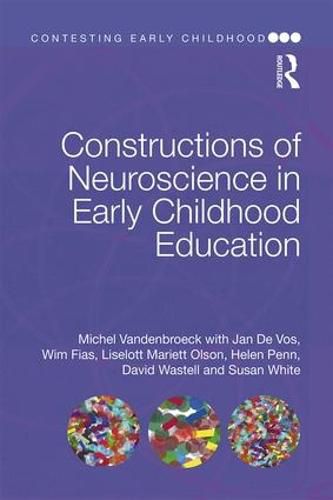Readings Newsletter
Become a Readings Member to make your shopping experience even easier.
Sign in or sign up for free!
You’re not far away from qualifying for FREE standard shipping within Australia
You’ve qualified for FREE standard shipping within Australia
The cart is loading…






This book explores and critiques topical debates in educational sciences, philosophy, social work and cognitive neuroscience. It examines constructions of children, parents and the welfare state in relation to neurosciences and its vocabulary of brain architecture, critical periods and toxic stress.
The authors provide insight into the historical roots of the relationship between early childhood education policy and practice and sciences. The book argues that the neurophilia in the early childhood education field is not a coincidence, but relates to larger societal changes that value economic arguments over ethical, social and eminently pedagogical concerns. It affects the image of the child, the parent and the very meaning of education in general.
Constructions of Neuroscience in Early Childhood Education discusses what neuroscience has to offer, what its limitations are, and how to gain a more nuanced view on its benefits and challenges. The debates in this book will support early childhood researchers, students and practitioners in the field to make their own judgements about new evolutions in the scientific discourse.
$9.00 standard shipping within Australia
FREE standard shipping within Australia for orders over $100.00
Express & International shipping calculated at checkout
This book explores and critiques topical debates in educational sciences, philosophy, social work and cognitive neuroscience. It examines constructions of children, parents and the welfare state in relation to neurosciences and its vocabulary of brain architecture, critical periods and toxic stress.
The authors provide insight into the historical roots of the relationship between early childhood education policy and practice and sciences. The book argues that the neurophilia in the early childhood education field is not a coincidence, but relates to larger societal changes that value economic arguments over ethical, social and eminently pedagogical concerns. It affects the image of the child, the parent and the very meaning of education in general.
Constructions of Neuroscience in Early Childhood Education discusses what neuroscience has to offer, what its limitations are, and how to gain a more nuanced view on its benefits and challenges. The debates in this book will support early childhood researchers, students and practitioners in the field to make their own judgements about new evolutions in the scientific discourse.